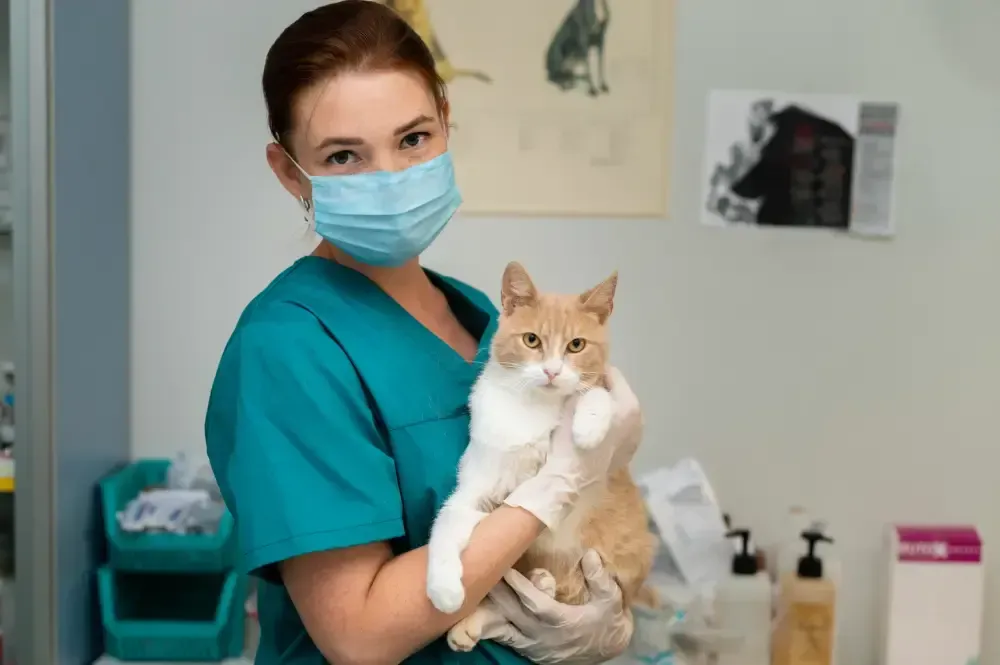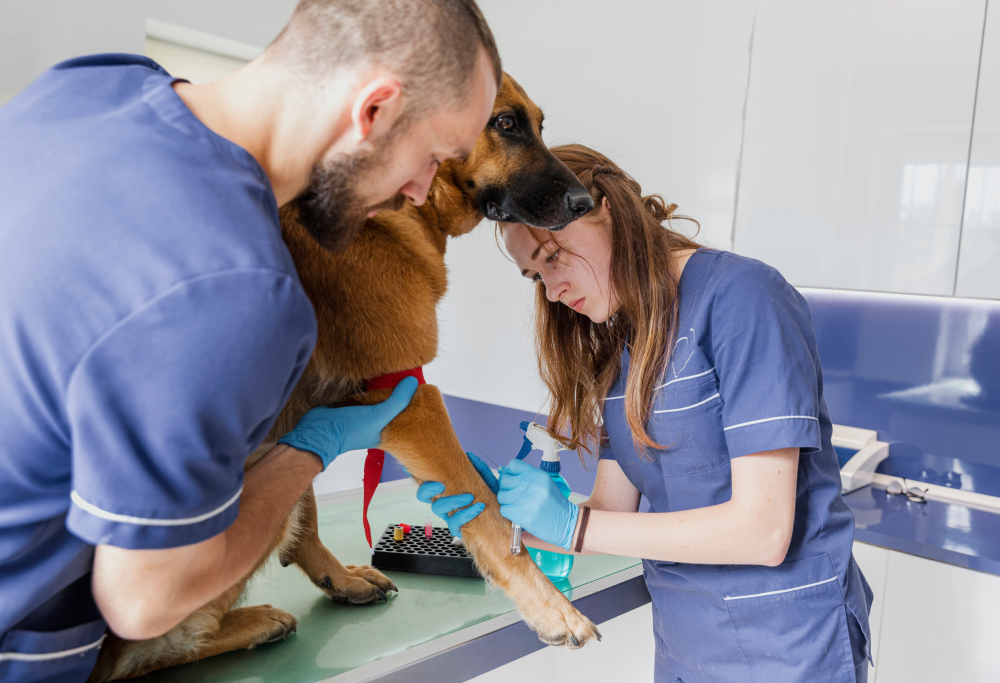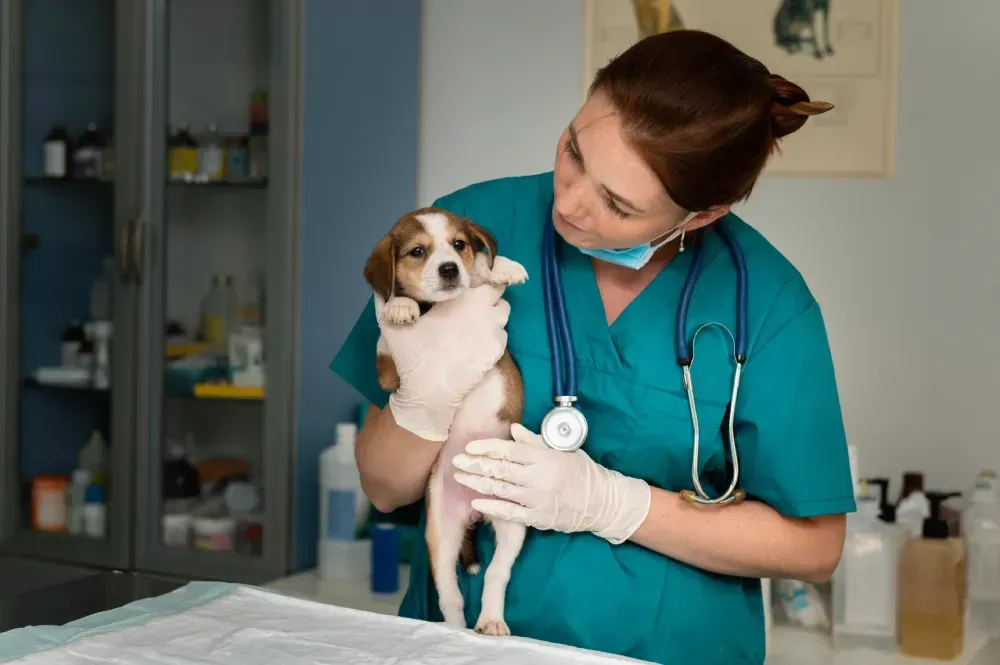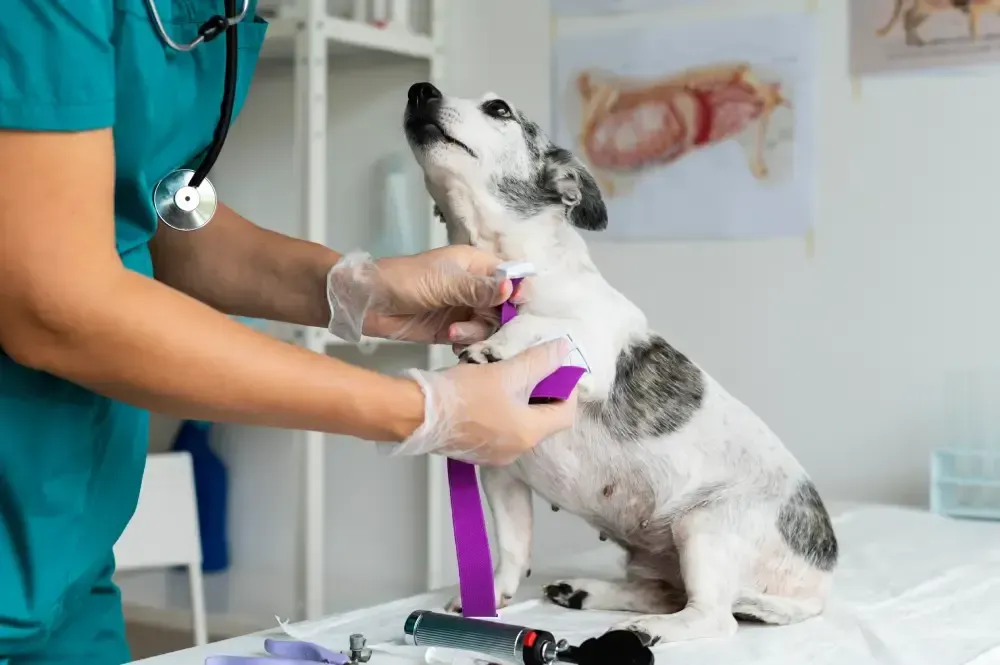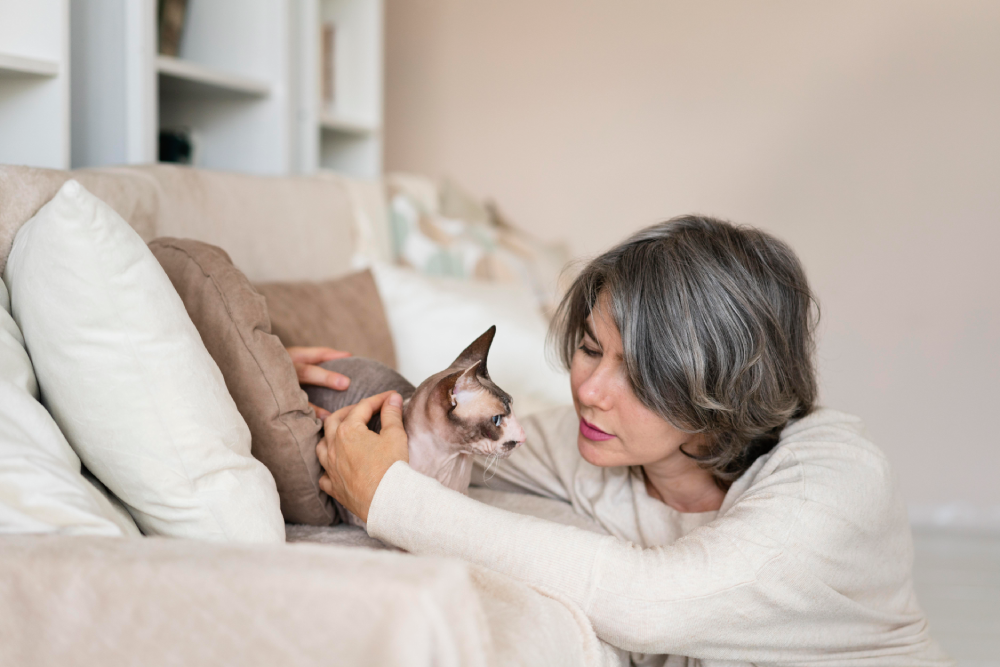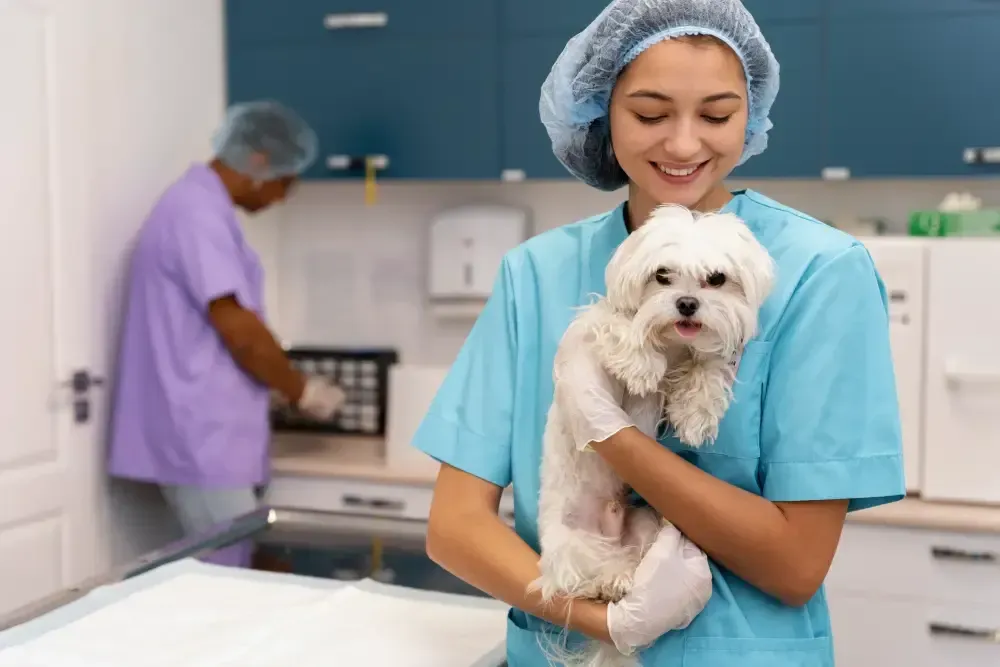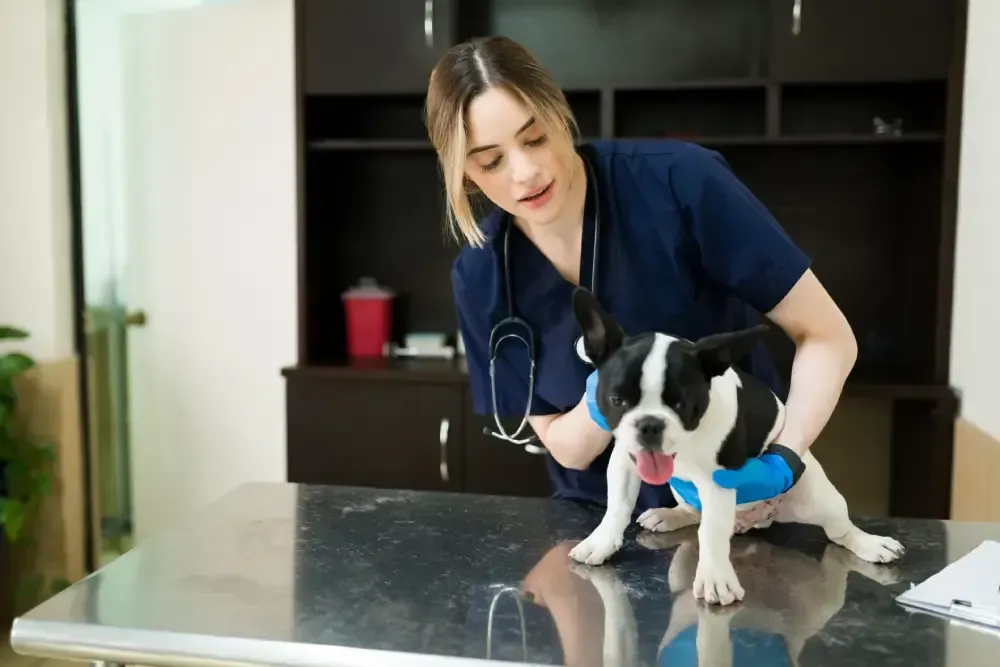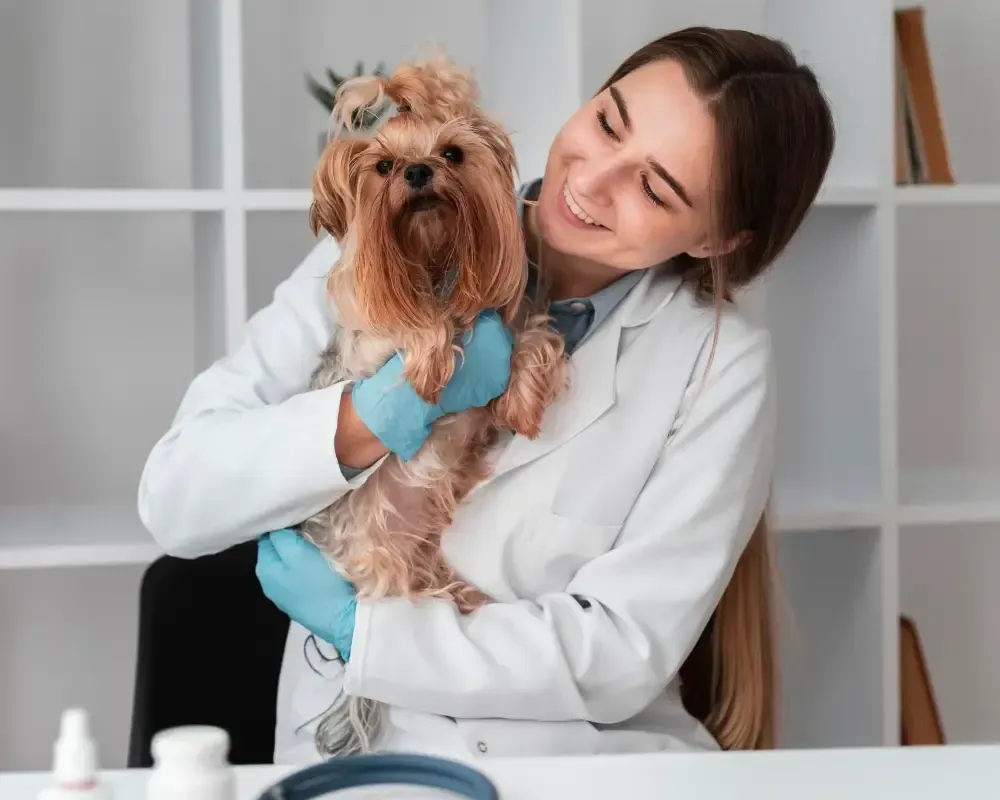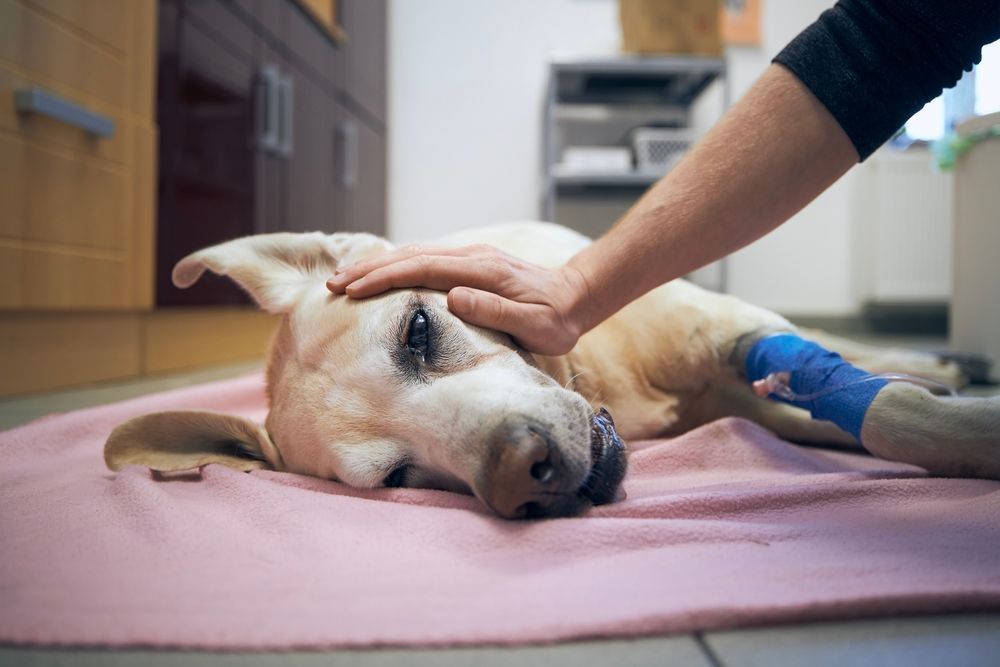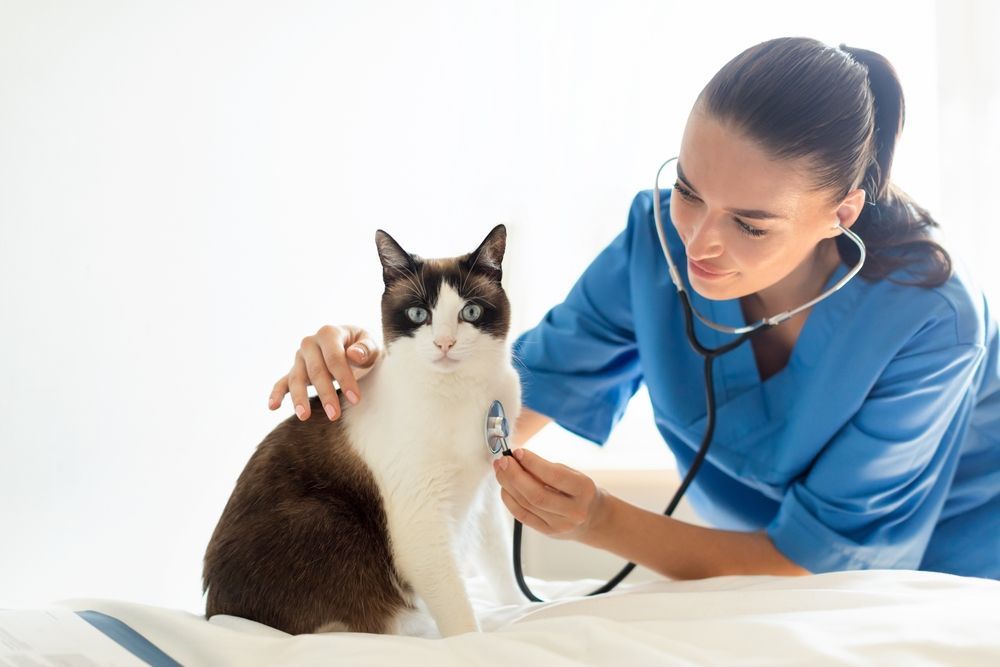When Your Pet Needs an Urgent Care Vet for Vomiting, Diarrhea, or Sudden Loss of Appetite
September 4, 2025
As pet parents, few things are as worrying as when our beloved animal suddenly becomes ill. One moment your dog or cat may be energetic and playful, and the next, they’re lethargic, refusing meals, or dealing with episodes of vomiting and diarrhea. These symptoms are among the most common red flags that something may be wrong, but they also raise important questions: When is it an upset stomach that will pass, and when is it a true emergency? Knowing when to consult an urgent care vet or even an emergency vet can make all the difference in protecting your pet’s health.
In this guide, we will explore the most important details pet owners must know about sudden digestive issues in animals, signs that require immediate attention, how urgent care services differ from emergency treatment, and what steps you should take when your furry friend shows concerning signs like refusal to eat, persistent vomiting, or ongoing diarrhea.
The Worrying Signs: Vomiting, Diarrhea, and Appetite Loss in Pets
Pets can’t tell us when they don’t feel well—which means it’s on owners to pay close attention to behavioral and physical symptoms. Occasional vomiting or skipping a meal might not always suggest a severe illness. But frequent or persistent issues signal that your pet needs evaluation, and sometimes immediately.
- Vomiting: This is one of the most common symptoms across pets. Occasional vomiting after eating too quickly may not indicate anything serious, but repeated episodes point to possible underlying problems—ranging from ingesting something toxic to gastrointestinal disorders.
- Diarrhea: Just like vomiting, diarrhea can occur occasionally due to dietary changes or stress. However, when diarrhea is prolonged, bloody, or accompanied by other symptoms, it can lead to dangerous dehydration and may signal infection or serious disease.
- Sudden Loss of Appetite: Pets love consistency with food. If your cat or dog suddenly stops eating for more than one meal, something is off. Lack of appetite is sometimes the earliest warning of illness in animals and should not be dismissed.
The challenge is deciding whether these issues warrant a wait-and-see approach, a call to your urgent care vet, or a drive straight to the emergency vet.
When Vomiting Becomes an Emergency
Vomiting once after eating something unusual may resolve with rest, but multiple episodes should alarm any pet parent.
Signs that vomiting is serious:
- Severe lethargy alongside vomiting
- Vomiting blood or material that looks like coffee grounds
- Painful or distended abdomen
- Repeated dry heaving without food being expelled
- Refusal to drink water
- Signs of toxicity exposure (plants, chemicals, human medication)
In such cases, it’s not safe to wait. You will need immediate medical attention, whether at an emergency vet facility or through your local urgent care vet, depending on availability. Persistent vomiting can quickly lead to dehydration, electrolyte imbalance, and other secondary complications, making professional care crucial.
Understanding Diarrhea in Pets
Like humans, animals can occasionally have an upset stomach. But while watery stool once may not be an emergency, ongoing diarrhea—especially when coupled with changes in appetite or behavior—should never be ignored.
Causes of diarrhea include:
- Dietary indiscretions (new treats, spoiled food, sudden diet changes)
- Stress or travel anxiety
- Parasites like worms or Giardia
- Intestinal infections
- Food allergies or intolerances
- Underlying illnesses that affect digestion or nutrient absorption
If diarrhea persists beyond a day, shows blood, or is accompanied by vomiting, your next step should be clear: contact an urgent care vet at once. When issues escalate quickly—like severe dehydration or worsening blood in stool—it may become necessary to see an emergency vet for intensive care.
The Seriousness of Appetite Loss
One of the most subtle yet alarming signs in pets is refusing to eat. Unlike humans who can miss a meal or two without major consequence, pets—especially cats—face real health risks when appetite loss lingers.
- Cats: Cats are particularly vulnerable. If they go without food for just 24–48 hours, they risk developing hepatic lipidosis, a life-threatening liver condition.
- Dogs: For dogs, appetite loss may signal pain, dental disease, infections, or more serious internal disorders.
If your pet refuses food for more than one meal, monitor them closely. If skipping meals is combined with other symptoms—such as vomiting, diarrhea, weakness, or unusual hiding behaviors—then contacting an urgent care vet becomes non-negotiable. When symptoms escalate to severe weakness, collapse, or continuous refusal to eat and drink, an emergency vet clinic is the safest option.
Urgent Care Vet vs. Emergency Vet: What’s the Difference?
Many pet owners struggle with whether to rush straight to an emergency hospital or reach out to their local vet clinic first. Understanding the difference between an urgent care vet and an emergency vet helps you make informed choices under pressure.
- An urgent care vet provides prompt but non-life-threatening medical attention. If your dog is vomiting multiple times but is still walking around normally, they may be seen at urgent care to prevent the condition from worsening. This type of care is often similar to walk-in clinics for humans—faster attention without the long wait of an ER.
- An emergency vet, on the other hand, handles immediately life-threatening conditions. If your pet is continuously collapsing, vomiting blood, or struggling to breathe, do not delay—drive straight to an emergency hospital where intensive monitoring, oxygen therapy, or emergency surgery can be performed.
Both exist to minimize suffering and ensure your pet gets the right intervention. As a responsible pet owner, learning when symptoms lean toward urgent or emergency care could save your animal’s life.
Why Timing Matters: The Dangers of Waiting It Out
It can be tempting to adopt a wait-and-see attitude when pets seem slightly under the weather. After all, a single upset belly may pass, saving time and money on veterinary visits. But digestive symptoms may escalate suddenly, leaving you with fewer options and a much sicker pet.
- Dehydration: When vomiting and diarrhea occur together, dehydration can develop within hours and spiral into an emergency.
- Infections: Some infections spread quickly. Treating them early with the help of an urgent care vet minimizes severity.
- Organ Failure: Appetite loss combined with other symptoms may sometimes indicate organ involvement—kidney issues, pancreatitis, or even liver disease.
Acting quickly is not just about immediate relief, but also about preventing minor issues from progressing into irreversible conditions.
What to Expect During an Urgent Care Vet Visit
If your pet shows ongoing vomiting, diarrhea, or appetite loss and you choose to consult an urgent care vet, here’s what will likely happen:
- History & Exam: Your vet will ask about symptoms, diet, medications, and possible toxin exposure before performing a physical exam.
- Diagnostic Tests: Depending on severity, bloodwork, urine analysis, x-rays, or stool tests may be performed to rule out causes like pancreatitis, infection, or ingestion of foreign objects.
- Fluid Therapy: Pets who are dehydrated may receive intravenous or subcutaneous fluids to restore hydration.
- Medications: Antiemetics for vomiting, probiotics for diarrhea, or appetite stimulants may be prescribed, depending on diagnosis.
- Follow-Up Guidance: An urgent care vet will tell you if home care is appropriate, or if referral to an emergency vet facility becomes necessary for advanced care.
This step is invaluable because it ensures your pet’s condition is addressed before worsening, without always jumping immediately to ER care unless required.
Home Care: What You Can (and Can’t) Do Before Seeing the Vet
While professional veterinary guidance should be your priority, there are safe steps owners can take while preparing for an appointment:
- Withhold Food for a Few Hours: If vomiting occurs, giving the stomach time to settle helps. Do not withhold water.
- Offer Small Amounts of Water: Hydration is critical. Give ice cubes or small sips to avoid triggering more vomiting.
- Avoid Home Remedies Without Vet Approval: Many human medications are toxic to pets. Do not give over-the-counter medicines unless specifically instructed by a vet.
- Watch Closely for Changes: Track frequency of vomiting, severity of diarrhea, appetite patterns, and any new symptoms.
These notes will be crucial when explaining your pet’s condition at the urgent care appointment.
How to Decide Between Urgent Care Vet and Emergency Vet
The decision rests on severity. Use this simple guide when unsure:
- See an Urgent Care Vet if:
- Your dog vomits once or twice but otherwise acts fairly normal.
- Diarrhea is mild and not bloody but continues for more than a day.
- Appetite loss has lasted a single day but your pet looks stable.
- Go to an Emergency Vet if:
- Vomiting shows blood, is relentless, or accompanied by collapse.
- Your pet is lying down, unable to get up, or breathing with difficulty.
- There are seizures, unconsciousness, or evidence of toxin ingestion.
This balance ensures you don’t delay care when it’s life-threatening, but also utilize urgent care as a practical solution when conditions are concerning but not dire.
Common Conditions Behind These Symptoms
When your pet experiences vomiting, diarrhea, or appetite loss, the underlying issue can range from minor to critical. Some commonly diagnosed conditions include:
- Ingested foreign objects (bones, toys, string)
- Pancreatitis
- Viral or bacterial infections
- Kidney or liver disease
- Food allergies and intolerances
- Stress-induced gastrointestinal upset
- Cancer-related illness
Only a veterinarian can determine which category your pet falls under, which is why professional evaluation is key.
FAQs About Vomiting, Diarrhea, and Appetite Loss in Pets
My pet vomited once but is acting fine. Do I need to rush to the vet?
Not necessarily. Occasional vomiting from eating too fast isn’t unusual. However, if vomiting repeats, shows blood, or is combined with lethargy or appetite loss, call an urgent care vet to be safe.
How long can I wait if my cat or dog refuses to eat?
Cats should not go more than 24 hours without eating, and dogs should not miss more than one to two meals. If appetite doesn’t return, call an urgent care vet. If refusal is coupled with severe symptoms, seek an emergency vet immediately.
Can diarrhea fix itself without treatment?
Mild diarrhea may improve in a day, especially if caused by diet or stress. But if diarrhea is persistent, bloody, or causing dehydration, veterinary care is urgent.
What should I bring to the urgent care vet appointment?
Bring a fresh stool sample if possible, a list of foods and medications, and a timeline of symptoms. This saves time in identifying possible culprits.
Is it expensive to see an emergency vet compared to an urgent care vet?
Generally, emergency vet visits cost more because of the 24/7 availability, equipment, and advanced interventions. However, if your pet is in crisis, cost shouldn’t delay care—life-saving treatment is the priority.
Keeping Pets Safe Starts With Awareness
As a pet parent, you’re the first line of defense when it comes to noticing abnormalities. Understanding the warning signs of vomiting, diarrhea, and loss of appetite—and knowing when to call an urgent care vet versus an emergency vet—is one of the most important things you can do to safeguard your furry friend. A watchful eye, quick decisions, and veterinary support not only protect your pet’s health but also give you peace of mind during those stressful moments.
My Montgomery Vet
2585 Bell Rd, Montgomery, AL 36117, United States
(334) 600-4050
